“Um som pop-rock hipnótico com um pulsar techno que convida o arquipélago a dançar a batida e a escutar o que as letras de Velding-VanDam transmitem, com vulnerabilidade, por vezes inesperada e agressiva, e sarcasmo mordaz, numa reflexão da actual geração“. É desta forma certeira que os The Wants surgem apresentados pelo Arquipélago de Escritores, festival literário que vai ser palco da estreia dos norte-americanos em Portugal. O concerto terá lugar amanhã (14 de Outubro, às 21h30, no Museu de Angra do Heroísmo) e, podem não acreditar, a entrada é livre. Ou à borla, se ainda estiverem a pensar nisso.
Antes de metermos ambos os pés neste Contentor, prontos para um abanar de anca que promete alguns movimentos tresloucados, colocámos cinco perguntas (arranjámos forma de encaixar mais uma ou outra) a Madison Velding-VanDam, vocalista deste trio que poderá muito bem tornar-se a vossa nova banda preferida. Atirando com a tradução às urtigas, as perguntas estão em português e as respostas em inglês, esperando que não fiquem lost in translation.
Já esta noite (13 Outubro, 21h30), na Casa do Sal (Angra do Heroísmo), Madison estará na boa companhia de Manuel Fúria e Cláudia Cardoso para uma conversa que será qualquer coisa como um “Romance com a Música”.
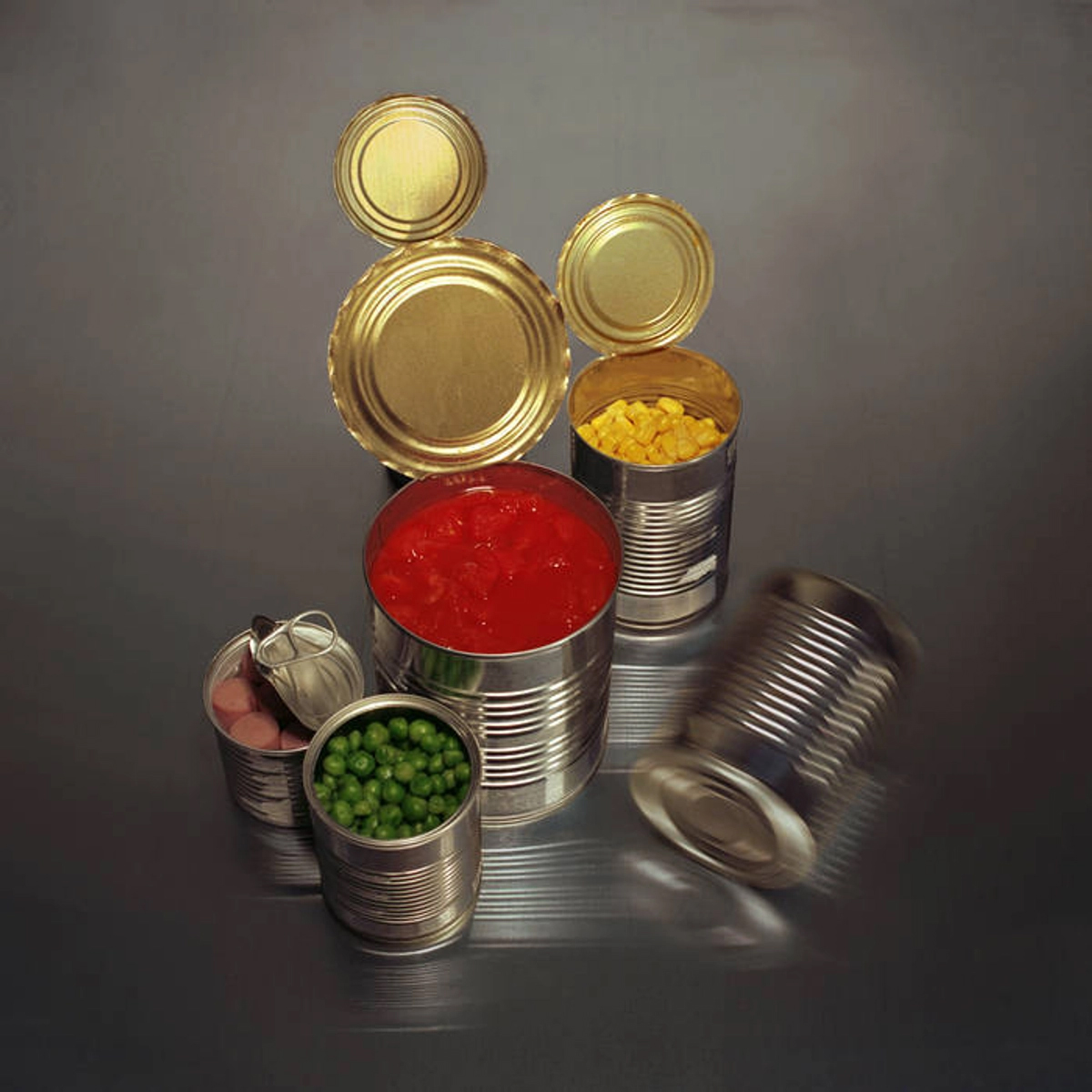
Capa de “Container”, disco de estreia dos The Wants lançado em 2020.
Para além de um levantamento contra o capitalismo, o materialismo, o consumismo e uma série de outros “ismos”, o que mais poderá ser encontrado dentro deste contentor?
It’s been a couple years since Container’s release and we’re nearing completion of a new album, so my mindset has shifted a lot since writing ‘Container’. I look at it in the rear view mirror, hopefully with more honest reflection than when we were writing it. I was indignantly airing my grievances against the “isms” of the world, but now I find it all less shocking. Hopefully my dark, gallows sense of humor shines through at times, mocking myself by existing in this ultra passionate state of outrage that inevitably horseshoes into comedy — not fully serious but not joking either. On a personal note, when we were finishing ‘Container,,’ my father died from years of alcoholism and drug abuse and I was facing my own mortality for what felt like the first time. I felt I had escaped the drudgery of where I grew up, the American Midwest “rust belt”, but I realized that’s only true to an extent, and Container is a reflection on that. With some distance and perspective, I gained a renewed appreciation for the beauty and character of my decayed homeland, and have a lot more empathy for the conditions in which my father struggled. This was the focus of a much of our artwork.
“Container” é um álbum político, que olha para as muitas mudanças que um país tão grande como um continente está a realizar. Nos dias de hoje, o que significa para ti ser americano, e quais são os grandes desafios que a América tem pela frente (sobretudo dentro de portas)?
Politics is a subject that I’ve been very interested in throughout my life, and it was what I studied in university, but now I find it borderline repulsive. I felt that politics, as I understood it, and art should be more connected at one point, but now that the subjects seem so malignantly, farcically intertwined, I feel naive for wishing this. Though not everyone means the same thing when they say “politics.” I see politics now as an act, a verb: “to be political”; “to engage in diplomacy”. One is political to an end. Right now, I find it more interesting for an artist, as it might be for a scientist, to engage with and pursue ideas, reality and truth regardless of whether it is diplomatic, politically viable, or favorable at the moment in the eyes of the powers that be.
I think a lot of artists are inclined to say their album tackles this issue or confronts that issue, but more times than not, it’s just not actually the case. It’s become a common marketing scheme, co-opting an ideology that the artist in no way lives. I want to be conscious of that, and remain questioning and curious about the degree to which art can achieve the proposed aspirations of an artist.
From an observational perspective, to be an “American” is: to be ruthless; on one hand provincial and on the other an imperialist; to be a globalist culture manufacturer; to be a negotiator of darkness side-by-side with others on whom you pass no judgment except for how they handle themselves in this struggle. From my perspective, it’s having to hold a lot in your mind and spirit simultaneously. A lot of good and a lot of bad, and not letting either eclipse the other. We’re negotiating power on many fronts right now: culturally, economically, and systemically and our greatest challenge ahead is whether or not we come out better for it. Optimistically, I’d say both feel possible.
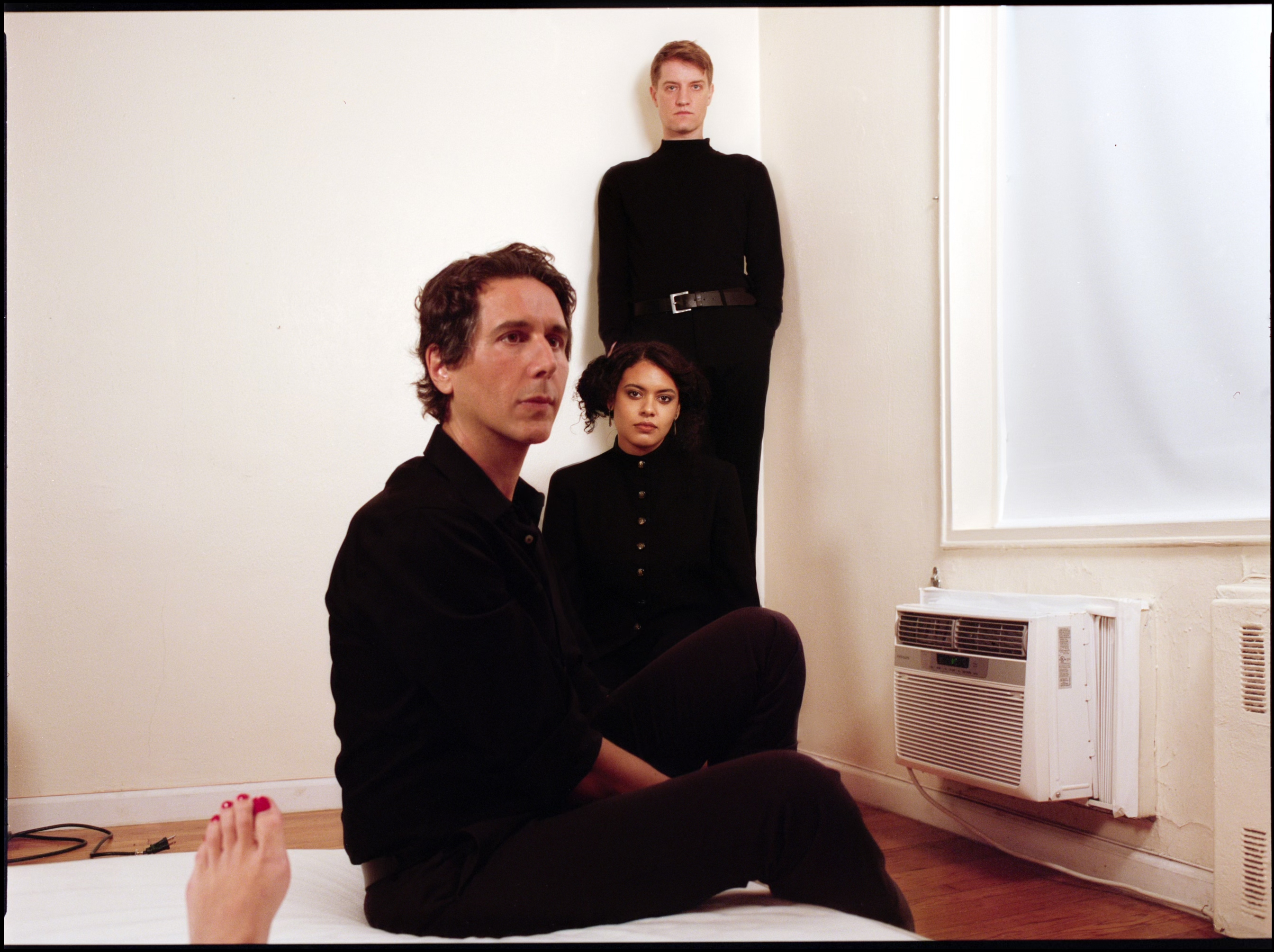
Foto: Madison Carroll
Há uma componente visual muito vincada e que parece desempenhar um papel muito importante na vossa mensagem e na vossa música, como se estivessem a construir um dicionário ilustrado para cada uma das canções. Uma imagem ainda é mais valiosa do que mil palavras?
Yes! Are those words necessarily interesting to engage with? No. For all our imagery, credit goes to my partner and collaborator Madison Carroll, a brilliant photographer who shoots on medium and large format film, imbuing all our images a lot of patience, intentionality and dreaminess. We put as much time into the artwork as the music on ‘Container’, which culminated in a photobook accompaniment for the album. Photography, like music, like many mediums, is so easy to create with contemporary technology, yet to make something great is still the challenge.
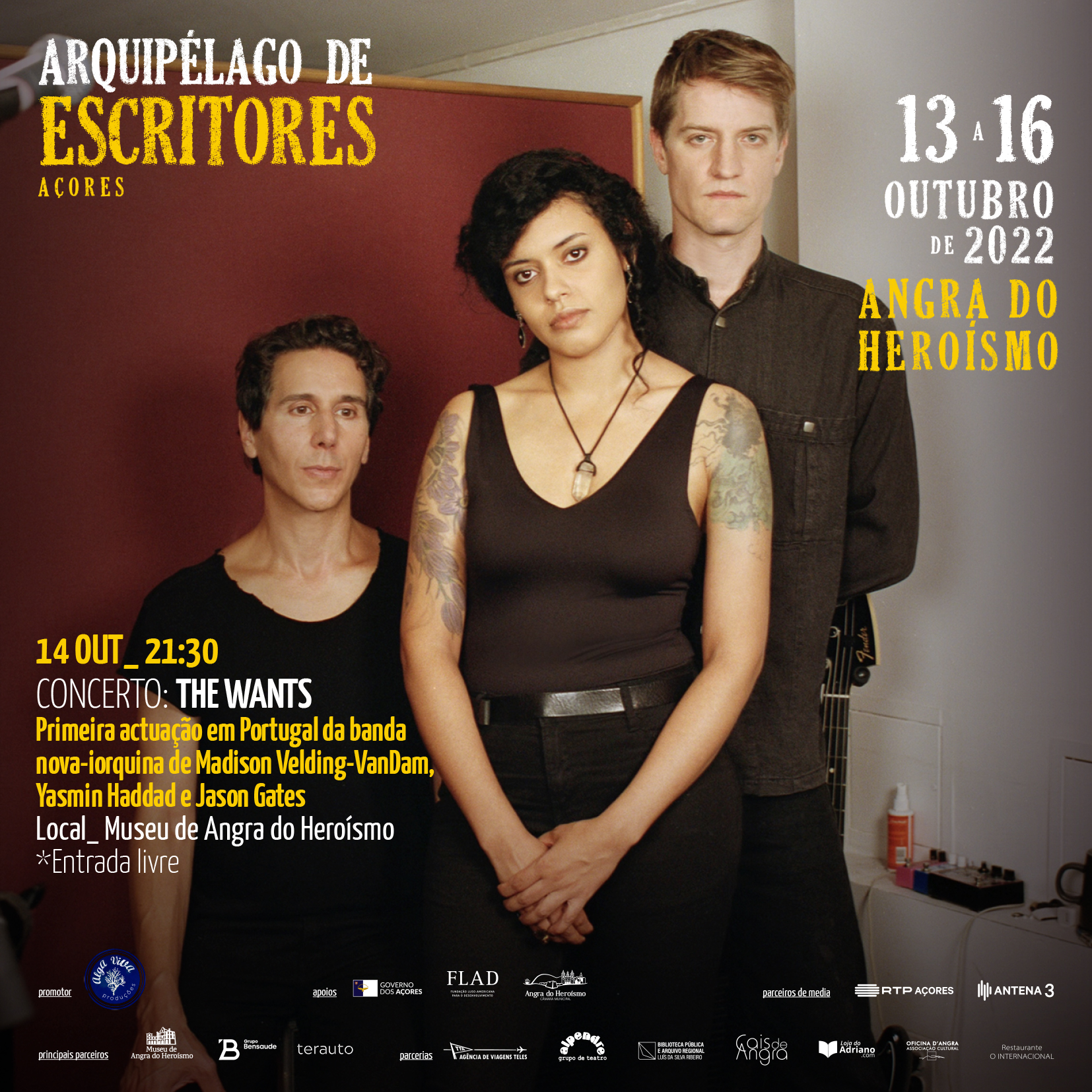
Qual é a sensação para uma banda norte americana, que se move nos terrenos do post-punk, estar a tocar – e também a falar sobre música – num festival literário? Trata-se de uma estreia ou já aconteceu antes? Aproveitando o embalo e uma vez que só temos mais uma pergunta depois desta, quais são os teus hábitos de leitura e preferências literárias?
This experience is refreshing, just like these questions are refreshing. I don’t know if there are many opportunities like this in our genre of music to traverse intellectual borders in such a tangible way, or engage as thoughtfully and intentionally with different mediums. We are very humbled by the invitation, and we hope there are more like it!
As far as my reading habits go, I have to admit that my girlfriend and I read books together before bed, and by that, I mean my girlfriend reads books to me out loud. It’s a great way to read… We recently finished Otessa Moshfegh’s new book, Lapvona, and really enjoyed it.
Na literatura mais recente, há uma clara tendência para a autoficção, com nomes como Karl Ove Kanusgard a conseguirem transformar a vida em bestsellers. Dirias que as letras dos The Wants são também autoficção?
“Autofiction” is a new word to me, although not a new concept. I see my lyrical efforts to marry my personal experience with extreme versions of my internal dialogues and fantasies as a type of autofiction. It seems like a worthy innovation in literature, a breaking of categorization rather than confining. I also feel a connection to Pessoa’s concept of “heteronyms”. I want to engage with the other, but that act is inherently an engagement with myself.

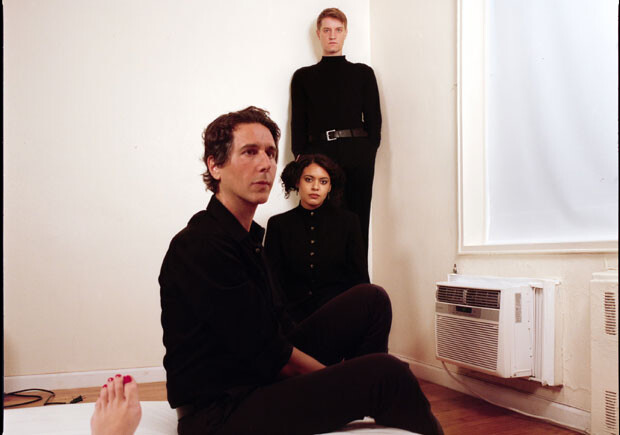
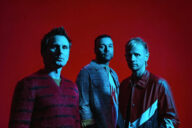

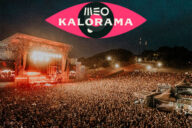






Sem Comentários